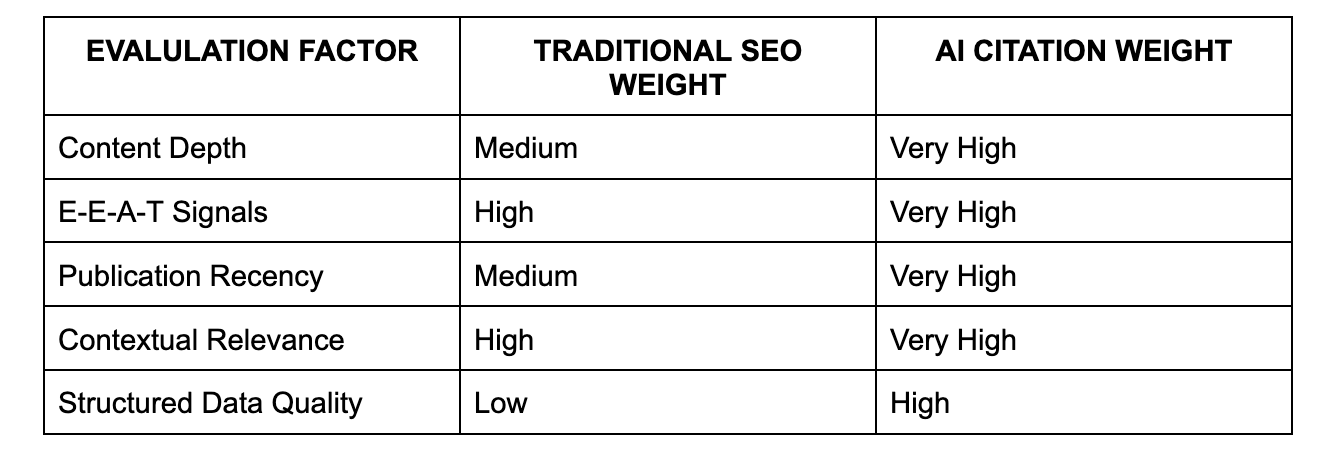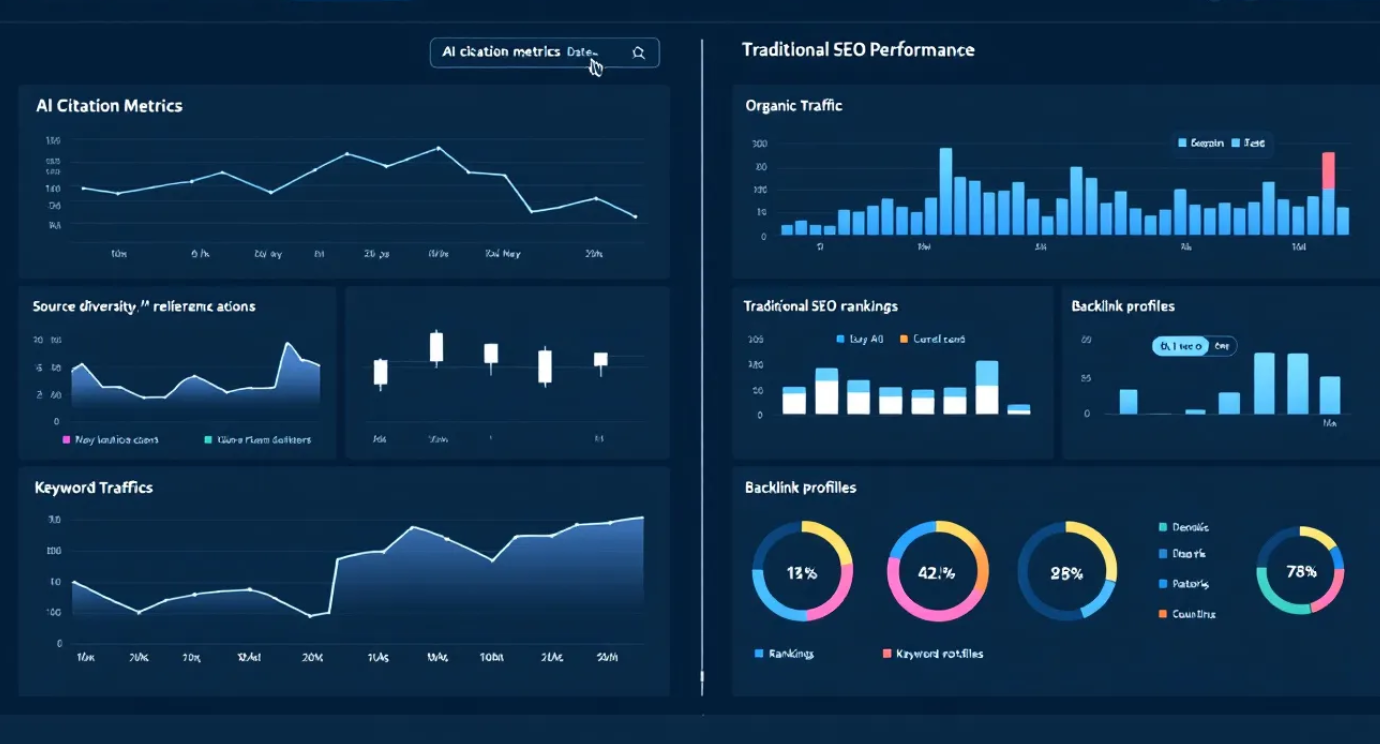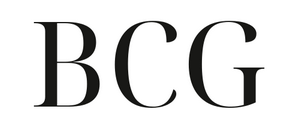The Shift from SEO Rankings to AI Citations - What Every CMO Must Know
Sep 30, 2025
The search landscape your marketing team optimized for just two years ago no longer exists.
While you’ve been perfecting traditional search engine optimization strategies, artificial intelligence has quietly revolutionized how users discover and consume information online.
SEO rankings have become less effective in driving traffic due to the rise of AI-generated answers that often eliminate the need for clicks. This fundamental shift from SEO rankings to AI citations represents the most significant change in digital marketing since the mobile revolution.
The numbers tell a compelling story: 58.5% of google searches now end without clicks to external websites, and 47% of all search results feature AI overviews that synthesize information from multiple sources. ChatGPT’s explosive growth to 1.8 billion monthly visits, combined with Google’s Search Generative Experience rollout, signals that AI generated answers are becoming the primary way users consume search information.
For CMOs and marketing teams managing organic search strategies, this transformation requires immediate attention.
The traditional metrics that guided your SEO success—keyword rankings, organic traffic, and click-through rates—are becoming less predictive of actual business impact.
In 2025, AI citation emerges as a new metric of authority, focusing on being a trusted source in AI-generated answers. Instead, your brand’s authority and visibility increasingly depend on how frequently AI systems cite your content as a reliable source.

The Fundamental Change in Search Visibility
Traditional search results presented users with blue links ranked by complex algorithms weighing hundreds of factors.
Today’s AI powered search experiences fundamentally alter this dynamic by providing direct answers sourced from multiple domAIns, with explicit citations that grant authority without necessarily driving traffic.
The scale of this change is unprecedented. Recent studies analyzing over one million AI overviews reveal that 81.10% of AI-generated responses include at least one source from Google’s traditional top 10 rankings.
However, the relationship between Google rankings and AI citation frequency operates differently than historical click-through patterns. The contextual relevance scoring determines which sources are cited based on the context of the user's query.
When your content ranks #1 in traditional search results, you historically captured 30-35% of all clicks. In the AI era, that same #1 position yields only a 33.07% chance of being cited in AI generated responses—and those citations typically generate click-through rates equivalent to position 6 in traditional search rankings.
This data reveals a critical disconnect: while AI systems heavily reference authoritative content from established domAIns, the traffic and conversion benefits don’t automatically follow. Your brand gAIns exposure and trust signals through AI citation, but the immediate ROI metrics your leadership team expects require fundamental reconsideration.
The Mechanics of AI-Powered Source Selection
Large language models like GPT-4, Claude, and Google’s Gemini operate through retrieval augmented generation (RAG) architectures that first identify relevant content, then synthesize responses while mAIntAIning source attribution.
This process prioritizes contextual relevance and authority markers that extend beyond traditional backlink profiles. AI systems assess authority based on external validation rather than traditional link metrics.
AI systems evaluate trust signals through multifaceted analysis including domAIn authority, content depth, author expertise, publication recency, and alignment with user intent.
Notably, 40.58% of all AI citations come from websites already ranking in Google’s top 10, but AI models frequently pull from deep content within authoritative domAIns—specific help articles, case studies, or research papers that may not rank prominently for broad queries.
Real-time validation of content by AI systems impacts content visibility by assessing the accuracy and recency of the information provided.
Why Traditional SEO Rankings Are Losing Effectiveness
Publishers across industries report 20-40% organic traffic declines as AI search adoption accelerates.
This trend reflects more than algorithm volatility—it represents a fundamental user behavior shift away from link-clicking toward information consumption within AI interfaces.
Studies show a significant decline in organic clicks when AI features are present in search results.
The challenges extend beyond traffic metrics. Google algorithm updates throughout 2024 created unprecedented ranking instability, with sites experiencing dramatic position fluctuations despite maintaining best-practice search engine optimization SEO protocols.
These volatility patterns suggest traditional SEO ranking factors are becoming less reliable predictors of sustained visibility.
Zero-click searches continue expanding, with voice search representing 71% of user preference in certAIn demographics. When users can obtain satisfactory answers through AI generated content, the motivation to visit source websites diminishes significantly. This behavioral change fundamentally undermines traffic-based KPIs that have guided digital marketing strategies for decades.
The Limitations of Keyword-Centric Strategies
Traditional keyword research and optimization tactics struggle with conversational queries that characterize AI search interactions. Users increasingly use phrase searches as natural language questions rather than fragmented keyword phrases, and AI systems understand intent through semantic context rather than exact phrase matching.
Keyword stuffing and density optimization—once effective for search visibility back in 2005—now appear unnatural to both AI systems and users consuming AI generated responses. Modern content strategy must prioritize comprehensive topic coverage and authoritative expertise over traditional keyword placement tactics.
This is where so many inexperienced SEOs get this wrong.
The disconnect becomes apparent when analyzing actual search behavior: users ask AI platforms complex, multi-faceted questions that span multiple keyword clusters, making traditional keyword-centric content inadequate for earning citations in comprehensive AI responses.

How AI Citation Systems Operate
Understanding how large language model SEO differs from traditional Google SEO requires examining the technical processes behind AI-generated responses.
AI systems don’t simply rank content—they synthesize information from multiple sources while maintaining transparency through explicit source attribution.
AI citations measure content authority within AI-generated answers, distinguishing them from SEO rankings, which measure position in traditional search result lists.
The citation selection process involves several evaluation layers:

AI models prioritize content that demonstrates Experience, Expertise, Authoritativeness, and Trustworthiness (EEAT through measurable signals rather than link popularity alone.
This includes author credentials, publication in industry publications, original research citations, and consistent accuracy across multiple topic areas.
Trust Integrity Scores and Authority Assessment
AI citation systems evaluate credibility through real-time validation processes that extend beyond static domain metrics. These systems analyze content freshness, fact-checking consistency, and source diversity to ensure reliable information synthesis.
Structured data and schema markup become critical for AI comprehension, enabling systems to understand content context, author credentials, and publication hierarchies. Unlike traditional search results that might rank based on historical authority, AI systems require immediate validation of information accuracy and relevance.
The multifaceted citation approach means AI responses typically reference 3-5 sources per query, creating opportunities for specialized content to earn citations alongside established industry leaders.
This democratizes visibility for brands that demonstrate genuine expertise in specific topic areas, even if their overall domain authority lags behind larger competitors.
Strategic Implementation for Marketing Teams
Transitioning from traditional SEO metrics to AI citation optimization requires systematic content auditing and restructuring. Marketing teams must evaluate existing content through the lens of AI comprehension and citation potential rather than solely keyword relevance.
The transition from traditional SEO to AI citation requires a complete rethinking of metrics for success.
Begin with a comprehensive content audit that identifies:
- Authoritative long-form content that demonstrates topic expertise
- Case studies and original research that provide unique insights
- Expert-authored content with clear credentialing
- Frequently updated resources that maintain information accuracy
- Well-structured content with proper schema markup implementation
The restructuring process should prioritize layered content types that serve both traditional search rankings and AI citation potential. This includes developing comprehensive whitepapers that establish thought leadership, executive summaries that provide quick insights, and detailed case studies that demonstrate practical application.
Content Optimization for AI Comprehension
Effective generative engine optimization requires understanding how AI models process and evaluate content for citation potential. Focus on creating content that directly answers common questions in your industry while demonstrating clear expertise and authority. Generative Engine Optimization (GEO) focuses on optimizing for AI-driven answers and generative search engines like ChatGPT, Perplexity, and Google AI Overviews.
Structure content using clear hierarchies with descriptive headings that help AI systems understand information organization. Include author bios, publication dates, and source citations that establish credibility. Implement structured data markup to help AI systems parse content context and attribution information.
Consider prompt engineering principles when developing content—write in a way that naturally lends itself to quotation and summary. This means using clear, declarative statements backed by evidence rather than marketing language that resists factual synthesis.
Building Authority Through External Validation
Research indicates that 61% of AI brand reputation signals derive from editorial mentions in authoritative publications rather than owned content alone. This reality necessitates renewed focus on digital pr and relationship building with industry experts and thought leaders.
Develop strategies for earning citations in peer-reviewed publications, industry research reports, and expert commentary. Unlike traditional link building focused on domain authority transfer, AI citation building emphasizes content quality and source credibility verification.
Build relationships with journalists, researchers, and industry analysts who frequently publish content that AI systems reference. Contribute original research, provide expert commentary on industry trends, and establish your team members as reliable sources for media queries.

Measuring Success in the Citation Era
Traditional SEO metrics provide incomplete pictures of performance in AI-driven search environments. Marketing teams need new KPIs that reflect brand authority and trust building rather than solely traffic generation.
Essential AI citation metrics include:
- Citation frequency across AI platforms (ChatGPT, Perplexity, Google AI Overviews)
- Source diversity in AI responses mentioning your brand
- Context quality of citations (primary source vs. supporting reference)
- Brand mention sentiment in AI generated content
- Authority topic coverage where your content earns citations
Implement citation tracking methodologies using tools that monitor brand mentions across generative AI platforms. Unlike traditional backlink monitoring, AI citation tracking requires real-time query testing across multiple AI systems to understand citation patterns and frequency.
A/B Testing for Citation Optimization
Develop testing frameworks that evaluate content modifications for citation potential rather than traditional ranking improvements. Test variations in content structure, expert attribution, and source citation to identify patterns that increase AI reference likelihood.
Monitor how content changes affect citation frequency across different AI platforms, as each system may prioritize different authority signals. Document successful optimization patterns that can be applied systematically across your content portfolio.
Track the relationship between traditional search rankings and AI citation frequency for your content to understand how both metrics contribute to overall brand visibility and authority building.
Integrated Strategy for the Transition Period
Most marketing organizations cannot immediately abandon traditional SEO strategies while building AI citation presence. Successful transition requires dual optimization approaches that maintain existing traffic while preparing for continued AI search adoption.
Allocate resources using a 70-30 split initially: 70% continuing proven traditional SEO tactics that drive current business results, 30% experimenting with AI citation optimization techniques. Gradually shift this balance as AI search adoption accelerates and citation-based authority demonstrates measurable business impact.
Organizational Change Management
Help your marketing team understand that this transition represents evolution rather than replacement of their existing skills. Traditional SEO fundamentals—content quality, user intent understanding, and technical optimization—remain relevant in AI citation contexts.
Provide training on new tools and measurement methodologies while maintaining focus on business objectives. Emphasize that AI citation optimization enhances rather than contradicts established content marketing principles.
Address concerns about metric changes by demonstrating how AI citation frequency correlates with long-term brand authority and customer trust, even when immediate traffic impacts remain unclear.
Resource Allocation Guidelines - A Recommended Approach for 2026
Implement phased adoption across Q1-Q4 2026:
Q1 2026: Audit existing content for AI citation potential and begin systematic schema markup implementation
Q2 2026: Launch pilot AI citation optimization campaigns for core topic areas
Q3 2026: Scale successful optimization patterns across broader content portfolio
Q4 2026: Integrate AI citation metrics into standard reporting and planning processes
Maintain traditional SEO efforts while building competency in generative AI platforms and citation tracking methodologies. This parallel approach reduces risk while positioning your organization for continued search evolution.

Future Outlook and Competitive Advantage
The shift from SEO rankings to AI citations will accelerate through the remainder of this year into 2026 as major AI platforms enhance their search capabilities and user adoption reaches mainstream levels.
Organizations that establish strong AI citation presence early will benefit from algorithmic trust signals that become increasingly difficult to achieve as competition intensifies.
Content strategies must evolve to ensure visibility in AI-generated answers rather than just traditional search rankings.
Early adopter advantages include:
- Algorithmic recognition as authoritative sources across multiple AI platforms
- Brand positioning as industry thought leaders in AI-mediated discovery
- Content optimization experience that compounds over time
- Measurement frameworks that accurately predict business impact
The emergence of multimodal optimization presents additional opportunities for brands willing to experiment with visual and voice content that AI systems can reference and cite.
Video content, infographics, and audio resources will increasingly serve as citation sources as AI capabilities expand beyond text-only responses.
Case Studies in Successful Transition
Leading brands in technology, healthcare, and professional services demonstrate early success patterns in building AI citation authority. These organizations prioritize comprehensive content creation, expert authorship, and systematic optimization for AI comprehension while maintaining traditional search performance.
Successful strategies consistently emphasize creating content that serves users whether they access it directly or through AI mediation. This user-first approach ensures content quality that both traditional search engines and AI systems recognize and cite.
The competitive landscape will increasingly favor organizations that understand AI citation as a long-term authority building strategy rather than a traffic generation tactic.
Brands that adapt measurement frameworks and content strategies accordingly will establish sustainable advantages as search continues evolving.
The shift from SEO rankings to AI citations represents a paradigm change that demands immediate strategic attention from marketing leaders.
While traditional search optimization remains relevant during this transition, the organizations that begin building AI citation authority now will establish competitive advantages that compound over time.
Your marketing team’s success in this new landscape depends on balancing proven traditional SEO strategies with emerging AI optimization techniques.
The data clearly shows that AI systems heavily reference authoritative content—but earning those citations requires understanding how AI platforms evaluate and synthesize information differently than traditional search engines.
Start with a comprehensive audit of your existing content for AI citation potential, implement systematic schema markup improvements, and begin tracking your brand’s citation frequency across major AI platforms.
The shift is already underway—your competitive position depends on how quickly you adapt your strategy to this new reality.
We offer a consultative approach on this and many search and AI marketing strategies. Please reach out directly to us for a conversation.


